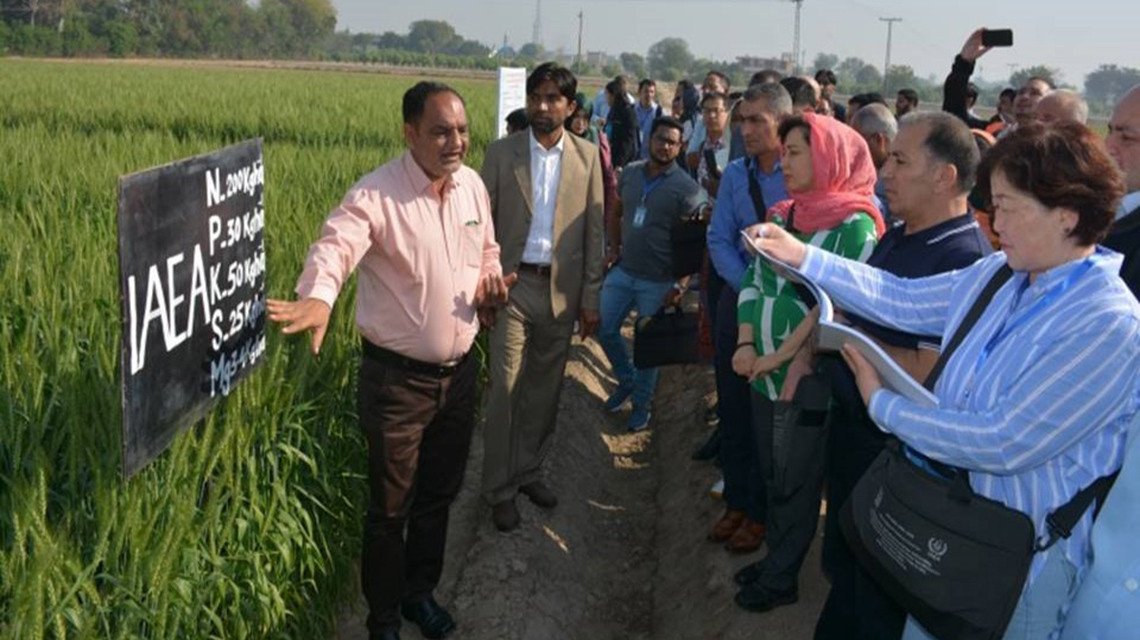The IAEA and the United Nations Office for South-South Cooperation (UNOSSC) will launch a new series of joint activities to enhance collaboration, following an agreement signed during the recent UN High Level Political Forum in New York. The agreement, which includes joint workshops, outreach events and a new publication, will link the IAEA more closely with an international community of South-South practitioners.
"South-South cooperation is at the heart of the IAEA's technical cooperation programme, as it is key to enhancing impact and ensuring sustainable development. We look forward to strengthening our ties with UNOSSC to widen the reach of our activities and support offered through South-South cooperation," said Hua Liu, IAEA Deputy Director General and Head of the Department of Technical Cooperation.
The agreement builds on collaborative efforts over the last several years and includes an accompanying action plan with clear goals for new products and initiatives. Through the agreement, the IAEA will participate in new UNOSSC programmes, including its 'Data to Policy Network' and 'Solutions Lab' over the next year.
Under the auspices of the UNOSSC 'Data to Policy Network', the IAEA will host targeted workshops for national policymakers to consider climate action success stories that might be adapted to their countries' needs. The UNOSSC 'Solutions Lab' will bring the IAEA together with other international organizations to identify areas where nuclear science and technology can be supported by conventional techniques. For example, although scientists can analyse water resources through isotope hydrology, it is water management methods like drip irrigation that ultimately conserve water.
"UNOSSC is very pleased to join efforts with the IAEA to leverage our networks and instruments to advance science-backed solutions and knowledge to bridge Sustainable Development Goal gaps via South-South and triangular cooperation," said Dima Al-Khatib, Director of UNOSSC.
The first set of IAEA-UNOSSC activities covered by the agreement will focus on how the IAEA uses South-South and triangular cooperation to help countries to combat the effects of climate change, which are disproportionately damaging for developing countries.
From climate-smart agriculture to groundwater mapping, a new IAEA-UNOSSC joint publication will feature twenty IAEA climate action case studies with a South-South cooperation component, demonstrating how South-South cooperation is benefiting countries in the Global South.

Scientists in Pakistan demonstrate the benefits of plant breeding for tackling salinization to training course participants. (Photo: M. Zaman/IAEA)
For instance, after the IAEA supported Pakistan to develop more salt-tolerant crops, the Nuclear Institute for Agriculture and Biology went on to share their expertise with other countries directly by hosting fellowships and training courses. In the case of increasingly strained shared environmental resources, such as aquifers or the ocean, if one institution has the equipment and trained staff necessary to process samples, this can be leveraged to gain an accurate picture of environmental conditions in the whole region. In the Sahel region, African scientists at the University of Lomé analyse groundwater samples collected across 13 countries to better understand water availability.
South-South cooperation is the sharing of resources and experience among countries of the global South, whereas triangular cooperation is South-South cooperation that is facilitated by a global North country or international organization. Particularly at the regional level, countries can boost each other's sustainable development through South-South cooperation by supporting their neighbours in areas where they have an advantage - in knowledge and expertise, or in facilities, for example.
Ongoing collaboration between the IAEA and UNOSSC continues to raise awareness of the important role that nuclear science and technology can play in supporting countries' efforts for sustainable development.






